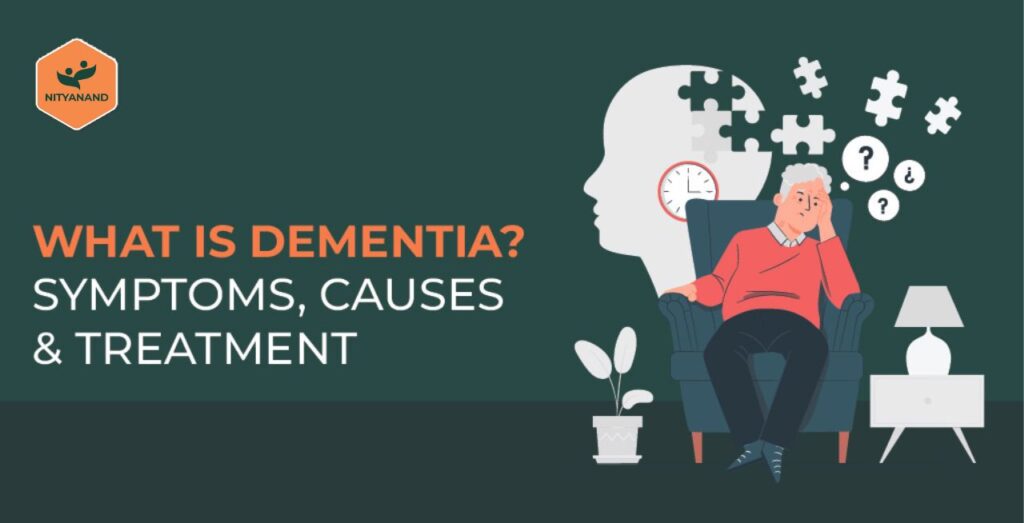WHAT IS DEMENTIA? SYMPTOMS, CAUSES & TREATMENT


Dementia is a broad term used to describe a set of symptoms affecting memory, cognitive function, and social abilities severely enough to interfere with daily life. It is not a specific disease but rather a syndrome associated with a decline in memory or other cognitive skills that impairs a person’s ability to perform everyday activities. In this blog post, we will delve into the various aspects of dementia, including its symptoms, causes, and available treatment options.
Symptoms of Dementia:
- Memory Loss: One of the most common early signs of dementia is memory loss that disrupts daily life. This can manifest as forgetting recently learned information or important dates.
- Difficulty in Communicating: People with dementia may struggle to find the right words or have trouble following and joining in a conversation. They may also repeat themselves or have difficulty organizing their thoughts.
- Impaired Judgment and Problem-Solving: Dementia can affect a person’s ability to make sound judgments or decisions. Tasks that involve planning and solving problems may become challenging.
- Mood Changes: Individuals with dementia often experience changes in mood, such as increased irritability, depression, or anxiety. These mood swings can be pronounced and may not have an apparent cause.
- Difficulty Completing Familiar Tasks: Dementia can make it challenging for individuals to complete routine tasks that were once familiar to them, such as cooking, driving, or managing finances.
Causes of Dementia:
- Alzheimer’s Disease: The most common cause of dementia is Alzheimer’s disease, accounting for the majority of cases. It involves the accumulation of abnormal protein deposits in the brain that interfere with communication between brain cells.
- Vascular Dementia: Caused by reduced blood flow to the brain, vascular dementia is often the result of a stroke or other conditions affecting blood vessels. It can occur suddenly or progress over time.
- Lewy Body Dementia: This type of dementia is characterized by the presence of abnormal protein deposits called Lewy bodies in the brain. It can cause a range of symptoms, including visual hallucinations and Parkinson’s-like motor symptoms.
- Frontotemporal Dementia: Frontotemporal dementia is marked by the degeneration of nerve cells in the frontal and temporal lobes of the brain, leading to changes in personality, behavior, and language.
Treatment Options:
While there is no cure for most forms of dementia, some treatments and interventions can help manage symptoms and improve the quality of life for affected individuals:
- Medications: Certain medications may help alleviate symptoms or slow the progression of some types of dementia. These medications are often prescribed based on the specific diagnosis.
- Therapies: Cognitive stimulation therapy, reminiscence therapy, and physical exercise have shown positive effects in managing dementia symptoms. Occupational therapy can also help individuals adapt to challenges in daily life.
- Support and Education: Providing support to both individuals with dementia and their caregivers is crucial. Support groups and educational resources can help caregivers better understand and cope with the challenges associated with dementia.
- Lifestyle Changes: Adopting a healthy lifestyle that includes regular physical exercise, a balanced diet, and mental stimulation can contribute to overall well-being and potentially slow the progression of certain types of dementia.
Conclusion :
Dementia is a complex and challenging condition that affects millions of people worldwide. Understanding its symptoms, causes, and available treatment options is essential for providing appropriate care and support to those affected and their families. As research continues, advancements in our understanding of dementia and potential treatment options offer hope for improved outcomes in the future.

